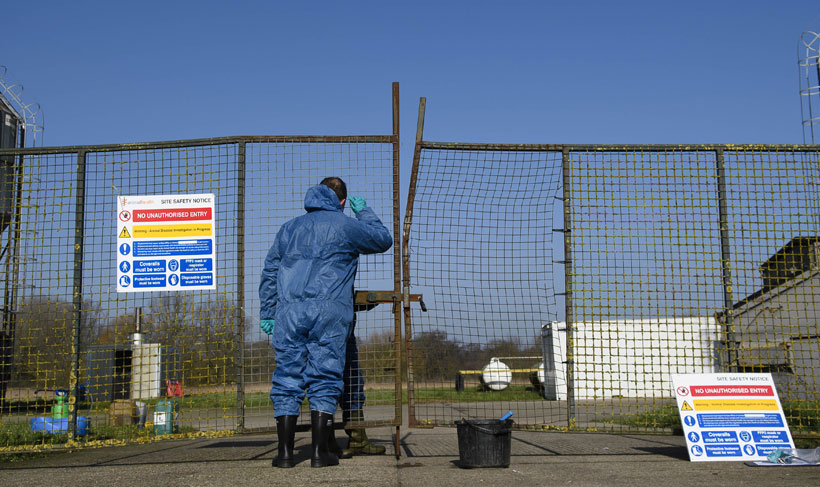
Authorities have ordered a cull of 32,000 free range hens following confirmation of highly-pathogenic bird flu on a farm in Aberdeenshire.
Avian influenza of the H5N1 subtype was confirmed on Sunday evening (9 July) at a premises near Banff.
A 3km protection zone and a 10 km surveillance zone have been declared around the premises, Defra said.
All of the affected 32,000 free range hens will be humanely culled, the department added.
The case is the third in recent days, as highly pathogenic avian influenza was detected in poultry in Cumbria and captive birds in West Sussex.
The scale of outbreaks across the UK and Europe have been unprecedented, with over 350 cases confirmed across the country since late October 2021.
The risk has since lowered, with the government lifting the mandatory housing order in April, as well as the Avian Influenza Prevention Zone (AIPZ) last week.
Dr Christine Middlemiss, the UK’s Chief Veterinary Officer, said: “Now we are in the summer months and the risk to poultry across Great Britain has reduced, it is the right time to lift the Avian Influenza Prevention Zone.
“This would not have been possible without the hard work of all bird keepers, who have upheld high biosecurity standards for many months.
"However, there are still localised areas of risk as we have seen recently, and therefore it’s vital that everyone keeps biosecurity and cleanliness at the forefront of their minds to keep their flocks safe.”
All poultry gatherings, including at fairs, shows and markets, remain banned, due to a large number of flocks mixing together and the risk posed by any infections spreading across the country.
What is the latest advice to poultry keepers?
The government calls on all bird keepers to keep a close watch on poultry and captive birds for signs of disease, while maintaining good biosecurity at all times.
If you have any concerns about the health of your birds, seek prompt advice from your vet.
All bird keepers (whether they are pet birds, a commercial farm or just a few birds in a backyard flock) can remain vigilant and help prevent avian influenza by:
• Cleansing and disinfecting clothing, footwear, equipment and vehicles before and after contact with poultry and captive birds – if practical, use disposable protective clothing
• Reducing the movement of people, vehicles or equipment to and from areas where poultry and captive birds are kept, to minimise contamination from manure, Slurry and other products, and use effective vermin control
• Thoroughly cleansing and disinfecting housing on a continuous basis
• Keep fresh disinfectant at the right concentration at all farm and poultry housing entry and exit points
• Minimise direct and indirect contact between poultry and captive birds and wild birds, including making sure all feed and water is not accessible to wild birds
